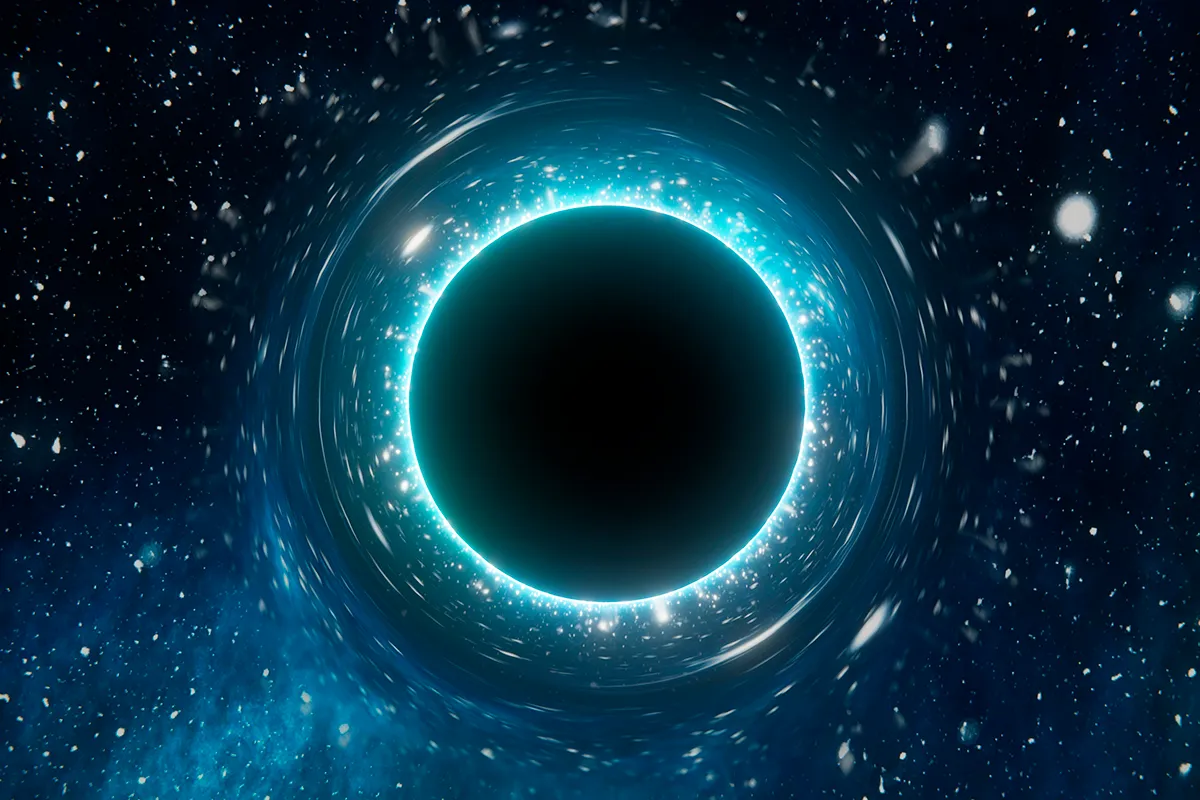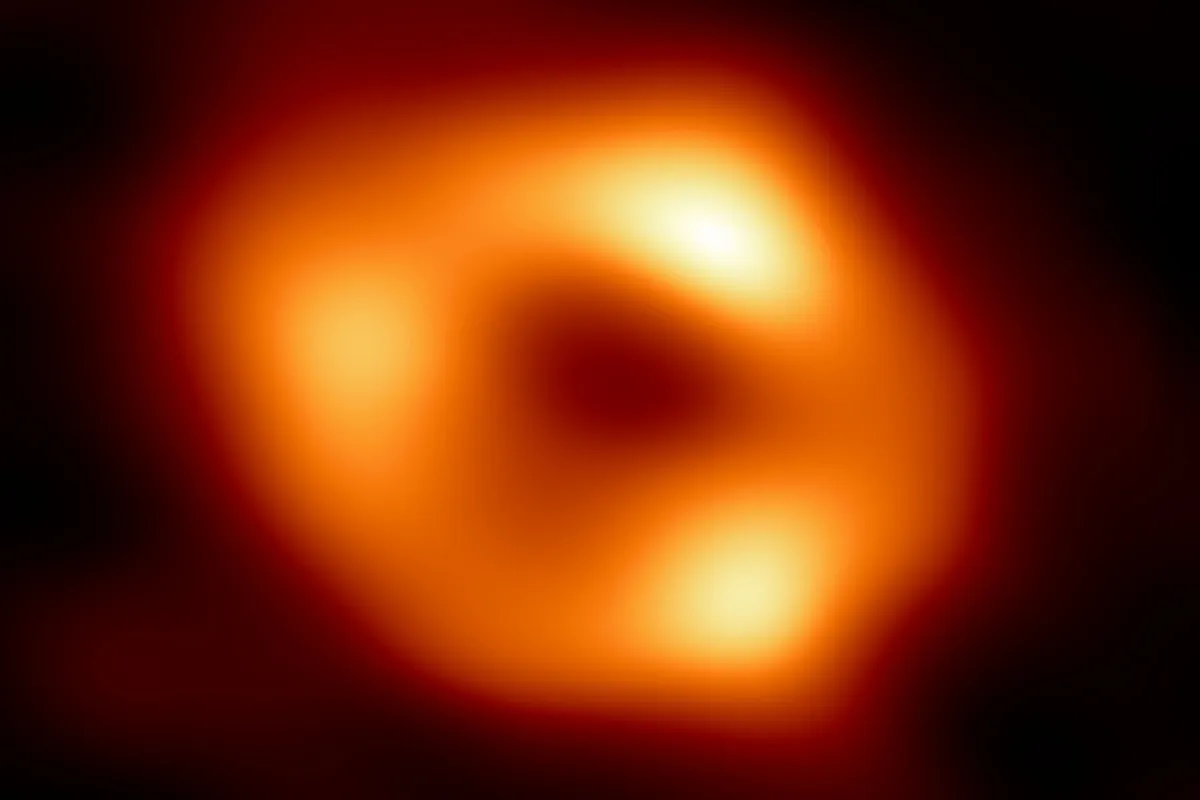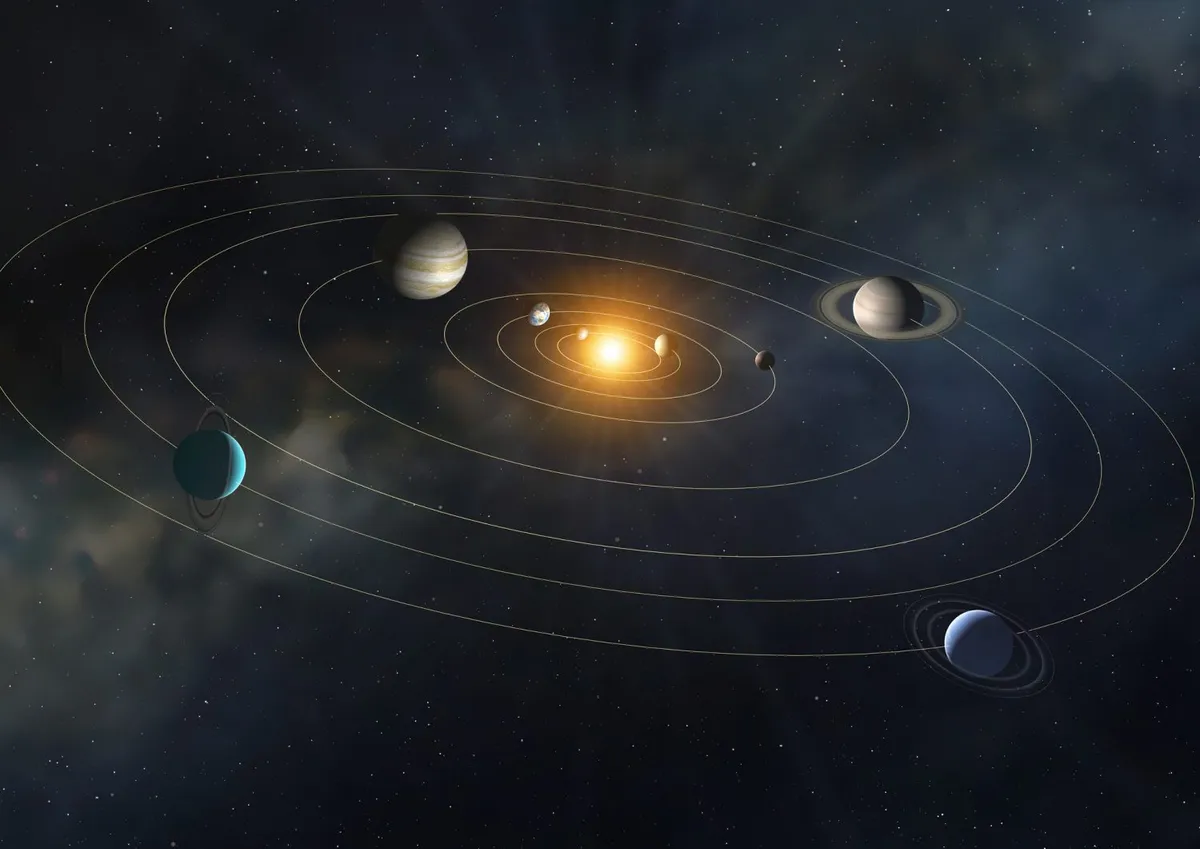Black holes are popularly thought of a cosmic vacuum cleaners, sucking up everything that wanders too close, so could Earth ever be swallowed by one?
The depiction of black holes as insatiable monsters is something of a misconception.
A black hole is a region of space where matter has become so densely packed that its gravity will let nothing escape – including light.
Time comes to a stop at its edge, and its centre may hide a point of infinitely small volume and infinite density, where all laws of physics break down.
The largest known black hole is in galaxy Abell 1201 and is 33 billion times the mass of our Sun.
Read our answers to some of the big questions about black holes.

Possessing the terrifying power to devour anything unlucky enough to pass within their grasp, it is little surprise these cosmic chasms have become a staple of sci-fi since the term ‘black hole’ was coined in 1964.
In May 2022, astronomers revealed the first ever photograph of the black hole at the centre of our Galaxy.

Despite their abundance, there is no reason to panic: black holes will not devour Earth nor the Universe.
It is incredibly unlikely Earth would fall into a black hole because, at a distance, their gravitational pull is no more compelling than a star of the same mass.

If our Sun were replaced with a black hole, would it swallow Earth?
Replace the Sun with a black hole of the same mass, and Earth and the other planets would continue orbiting the same way, because there would be no discernible change in the gravity acting on them.
If our Sun were replaced by a black hole, however, it would get very dark and cold in our Solar System.
The only way Earth could be swallowed by a black hole would be if our planet happened to stray across a wandering black hole’s event horizon.
That's something that is not going to happen any time soon, and likely never will.
